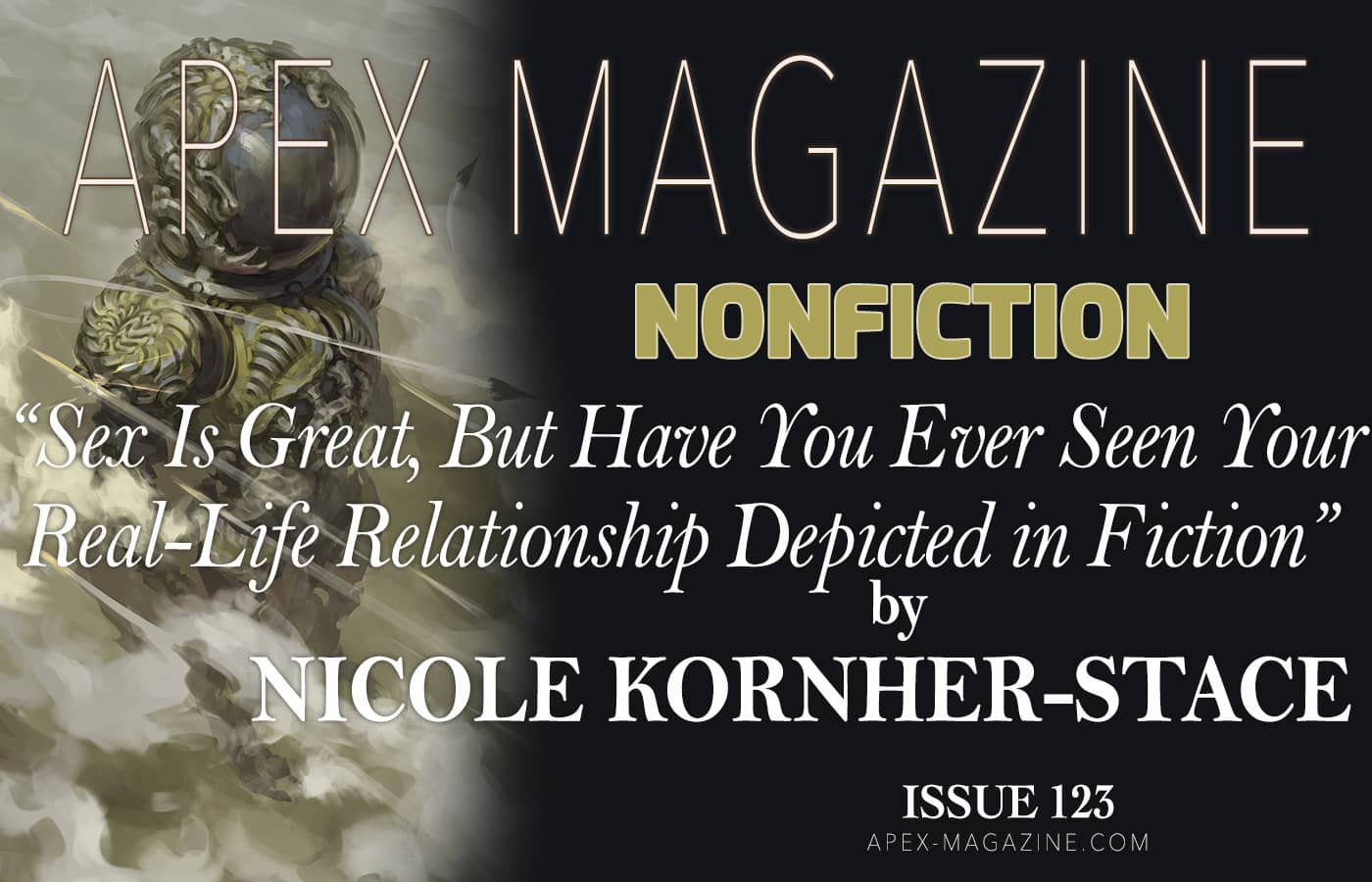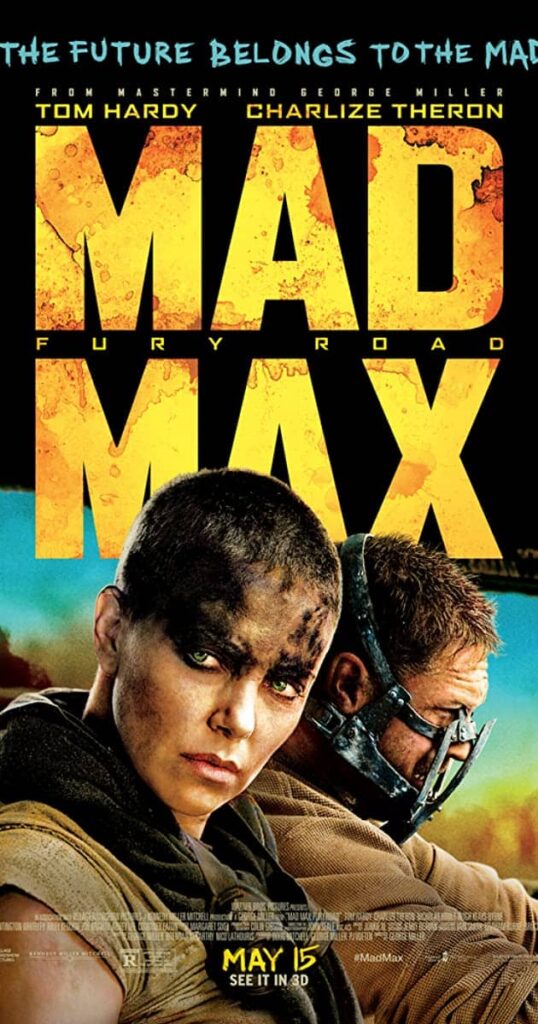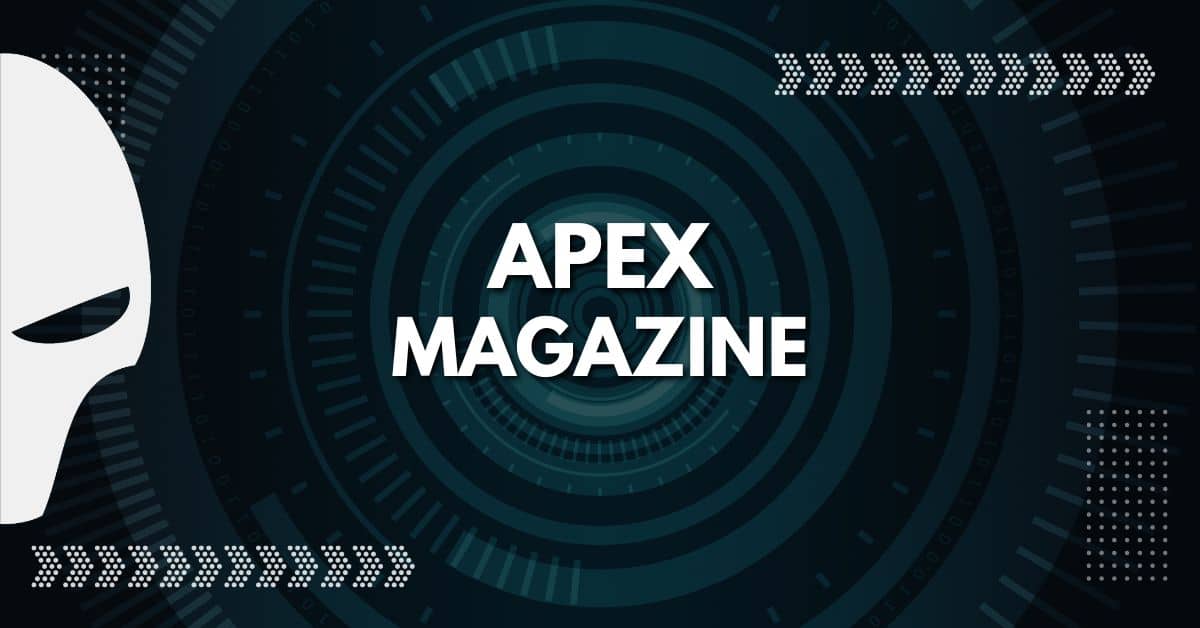
(title credit to Larissa Lichty)
In a second I’m going to ask you to do something. Don’t worry, it’s not too weird. Ready? Picture the best friend you’ve ever had. For the sake of argument, let’s say little-kid friendships don’t count. Teens and up. Bear with me, this is going somewhere. Picture how that friendship made you feel—still does, hopefully. All the fun you have together. All the shit you give each other. The exquisite revenge you’d exact upon anyone who so much as thought about hurting them. Maybe you haven’t known them all that long, but you clicked immediately, long-lost siblings-by-choice. Maybe you’ve been hanging out together so long that you’ve developed a private language of in-jokes and references to things that literally nobody else on the planet will understand. Maybe you’re so close that you’ve been mistaken for a couple, not for any good reason, just because many people have come to associate any kind of emotional or physical intimacy with relationships that are “more than friends,” a phrase that is a standing insult to strong friendships everywhere and which I would like to personally catapult into the sun. But never mind that. Are you picturing this awesome friendship of yours? Really hold it in your mind. Now try to recall the strongest friendship you’ve read in a book (comics count as books, but that’s a rant for a different day), or seen in a movie or TV show or video game. A friendship like the one you pictured earlier. Two—or maybe more—people who would absolutely and without hesitation kill or die for each other, but are not romantically and/or sexually involved. Okay? Hold on a sec. One complication. Again: media for kids doesn’t count. Teens and up. Just got a bit more challenging, didn’t it? Here’s hard mode:
- A fictional friendship between adults
- that is entirely platonic
- that means no sexual tension
- not even if it’s played for laughs
- andnot becausetheir sexual identities make them unavailable to each other.
Here’s the thing. Media aimed at kids is full of this type of relationship. Middle-grade books, cartoons, kids’ movies: chock full of excellent friendships. They go off and have adventures and fight monsters and solve mysteries and just generally Get Shit Done, all while having a blast in each other’s company. And it’s obvious they love each other, but not in the way that characters in media for teens and adults are expected to. It’s pure and it’s real and it’s valid and nothing further is necessary. What are we saying to young readers, who’ve just “graduated” from reading MG to YA and adult fiction, when we swap out all of those powerful friendships for romance and sex almost every single time? You can find some pretty solid fictional friendships between adult women, but otherwise? War movies and military SF might be the only place where nonsexual, nonromantic intimacy between men is normalized in fiction. As for friendships between men and women (unless one is explicitly gay or aro/ace or in a committed monogamous relationship—and in that last case there’s almost definitely going to be sexual tension, unresolved or no)? Ridiculously rare, despite the fact that so many of us both have and treasure real-life platonic relationships all the time. That friendship you were picturing a minute ago, for instance. It functions perfectly well without romance or sexual tension, yet strangers and acquaintances have probably mistaken it for a romantic or sexual relationship because we don’t really have templates for levels of friendship, or words in the language to name them. Intense friendship confuses people. They assume something else is going on. And why wouldn’t they, when 99.9% of fictional media aimed at teens and adults assures them that there is, or will be soon enough. Which is why it sucker-punches me right in the pleasure centers of my brain to run across a ride-or-die platonic relationship in a piece of fiction that’s well-written and true to itself. These can be actual friendships (Amos and Clarissa in The Expanse), alliances that become no less loyal than friendships (Furiosa and Max in Fury Road), or work relationships that become extremely intimate friendships instead of romances (Mako Mori and Raleigh in Pacific Rim). It frustrates me to the point of spontaneous combustion when I get partway through a book or movie that takes a perfectly gorgeously-written platonic relationship and tacks on a romance—or worse, a love triangle—out of nowhere for no discernible reason beyond checking off plot boxes. Or the characters—of formerly beautifully comfortable companionship—suddenly get Weird in one another’s presence because it’s Sexual Tension Time. And that amazing dynamic I’d just been reading about for 300 pages or watching for 90 minutes goes up in smoke, deemed (I guess) an insufficient hook from which to hang a character development arc.
BFFs Furiosa and Mad Max taking down Immortan JoeNo matter that the story has just told us, over and over again, that this relationship is intense and deep and ride-or-die. No matter that we’ve just followed them through their adventures, witnessed them have each other’s backs against all comers, seen that their love for each other is unquestionably valid. It still gets demoted to a stepping-stone for romance with no value on its own. Obviously this is the clear intent of some books and that’s fine! But it happens time and again, and it is not always the author’s desire—more on that below.We’re bombarded from all sides with the idea that the only valid love is romantic, that the only valid intimacy is sexual, to the point where it’s genuinely difficult to think of many books (or movies, or TV shows, etc.) that let an amazing ride-or-die platonic relationshipstay platonic.As a person whose strongest relationships have always been deep friendships at their core, I find this personally aggravating. We’ve made huge strides over the past few years in achieving greater representation for so many people. I’ve definitely read a few fictional friendships that managed to remain friendships because the possibility of a romantic/sexual relationship was ruled out due to incompatibility: one of the characters being gay or aromantic or asexual. Or a strong fictional friendship between two men or two women that became a romance, which is great. We absolutely need more representation of the whole LGBTQIA+ spectrum, and I am in no way suggesting otherwise. I’m especially thrilled to see that aro/ace representation is a thing that you can actually find in (a few) books today—if that had been available a couple of decades ago, my teen years would have been a lot less confusing. However. I would suggest that it’s damaging to the potential of many real-life friendships between people of all genders and sexualities when media tells us that platonic relationships can only exist after incompatibility rules out the possibility of sex or romance. Media has trained our society to treat real-life friendships with certain expectations. I talk about thisa loton Twitter and I’ve had a frankly alarming number of people reach out to me with stories of friendships ruined because they either were pressured into—or they pressuredthemselvesinto—turning a close, platonic relationship into a romantic/sexual one because that was what they thought was “supposed to happen.” I regularly hear such gems as: only asexual/aromantic people will be “happy to settle for” a platonic relationship, or that bisexual people can’t have friendships that aren’t freighted with sexual tension. Which brings me back to representation. If fictional media did more (which is to say: more than nothing) to normalize platonic intimacy as a possibility, show readers and viewers there is an alternative to romantic/sexual intimacy, would so many of us have so many stories of terrible, forced romantic relationships? Obviously, it’s impossible to say. All I can speak for is my own lived experience. I was a loner as a teen, and I consumed zillions of books and movies, and I can say unequivocally that representation of platonic intimacy would have gone a long way to helping me understand my own feelings, which were, in a word,confused.I’d feel drawn to a person for reasons that were really hard to rationalize given that I’d realize, every time, that I had zero interest in becoming romantically or sexually involved with them. I was beaten over the head with books and movies telling me that if I was obsessing over someone it was because I wanted to get in their pants, full stop. But all I really wanted was to be around them, to be important to them, to have a level of committed companionship and platonic intimacy that I did not have a word for, and still don’t really. I spent alongtime thinking there was something wrong with me, that I was missing something, like there was a hilarious joke that everyone else was in on. One good story with one protagonist with feelings that I could relate to would have been—and would still be—of immeasurable value to me. And I’ve talked to enough people to know I’m far from alone. But here’s the other problem. Among the people who reached out to me with their experiences were writers telling me that they’ve tried to provide representation for platonic relationships between characters. But it proved difficult in a society that expects romance to blossom out of the smallest hint of emotional intimacy, and if this doesn’t happen, that means the relationship has failed to reach its ideal state. The participants are relegated to “settle” for being “just friends,” or, worse, “friendzoned.” Would this super toxic concept be eradicated if we were shown that friendships have their own intrinsic value? Almost definitely not entirely. But it’d be a start. Writers were pressured—by writers’ groups, by agents, by publishers—to write in a romance they did not want to write. Or to spell out the “payoff” to the “sexual tension” that the reader imagined, and the author never intended to exist. Maybe most infuriating of all: that while their first readers found the lack of romance refreshing, the industry was not as fond of it. So either the romance gets shoehorned in to check those Plot Expectation boxes or the book gets pushed aside and never ends up seeing the light of publishing day. Lack of romance should never be a reason to reject a book outside of the romance genre. Saying, for instance, “this SF book needs a romance in order to represent/publish it” makes exactly as much sense as saying “this romance book needs a spaceship in order to represent/publish it.” Over the years of writers reaching out to me with their stories, I heard every variant of this type of rejection. Often. This is a problem. I had a similar experience when pitching my YA debutArchivist Waspback in 2014 or so. I had to turn down conditional offers of representation from agents who said, essentially, they loved the ideas in the book and it would be an easy job for them to sell it as YA if I could just see my way to writing in a romance so that teens would “have something to relate to.” I’d deliberately written this book to stand as an example of the type of story I craved as a teen and could never find, so that was one change I was 100% unwilling to make, no matter what I had to walk away from. I decided then and there that every book I ever write will be friendship-centered, with an emphasis on treating strong, platonic relationships with the same weight and gravity typically reserved for romantic relationships—and the reader reaction to every one of them has been overwhelming.
Archivist Wasp by Nicole Kornher-StaceWe see a lot of articles these days about how hard it is for adults to form lasting friendships. And they’re all sad reads, not least because the issue might be in part preventable. The need for strong friendships isn’t something we outgrow when we hit our teens, whatever the middle-grade/YA marketing divide would have us believe. Nor is the need for its representation. If the only form of love given space on the page and screen is romantic, it’s no wonder that people think strong friendships aren’t a valid use of their emotional energy. Given how important friendship is to most of us, I find it incomprehensible that it’s so hard to find it celebrated in media. If two characters start out hating each other, they’re incipient enemies-to-lovers. If they’re colleagues, sexual tension is going to be a large part of their character development. If three people have any kind of feelings for each other, it’s a love triangle waiting to happen. If the cast is a bunch of men and one woman, she’s going to end up sleeping with one of them. A pair of best friends is nothing but an underdeveloped couple, waiting to evolve into its final form. It just getsboringafter a while. Is romance really the only possible outcome for “here are two characters who really care about each other?” There’s such a huge variety of ways to express love in reality but media jumps to the same overplayed conclusion nearly every time, conflating devotion with romantic/sexual attachment at the exclusion of other possibilities. If that’s not the author’s preference, why pressure them to do it? It leads to a vicious cycle wherein it’s hard to publish a book without romance because of an assumption that it won’t appeal to readers…while readers are questioning the completeness and validity of their real-life friendships because of a learned assumption that romance is the only kind of love that counts. People tell me periodically that they assumed my books were for kids since I say they’re about friendships. Every time this happens it strengthens my resolve to normalize platonic relationships in fiction for people other than kids. Because the longer the stereotype persists, the longer the industry will push to reflect it. I’ll continue to do my tiny bit to push back. You’ll find me on this hill writing my friendship books forever—because it won’t seem normal until it’s normalized. One story at a time.











